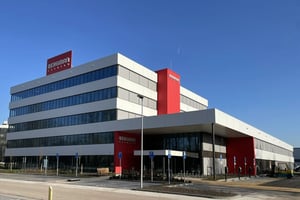NPM became one of three sponsors of the Baker Tilly Berk Chair of Family Business and Business Transfer at Nyenrode Business Universiteit. According to Head of Faculty, Roberto H. Flören, there is a growing appreciation of family businesses as a relatively crisis-resistant form of enterprise.
You started conducting research on family businesses back in 1992. What has been happening in this area in the last two decades?
“When the chair was first established, family businesses did not have a particularly good image. They were perceived as ‘stuffy’, ‘lethargic’ and ‘unsexy’. Let me put it this way: my students had no intention of working for a family firm. Since then this image has clearly changed for the better, partly because family businesses have become more professional and also because social perceptions have changed. Up until around 2000 the main focus was on maximising value for shareholders.
The motto was: grow the business as quickly as possible, float the company as soon as possible and dividend is king. Then there were scandals involving large companies such as Enron and Ahold followed by a series of international financial crises. And at that point it became apparent that family businesses had continued to do pretty well. Though they were affected by these developments, they kept operating and were less likely to go under. It appeared to be a form of enterprise that was relatively crisis-resistant. This combined with their increased professionalism led to growing appreciation of the merits of family businesses.”
The Family Business Chair has been sponsored since 2002. Are you free to determine the direction of the research programme? Or do you have to answer to your sponsors?
“At Nyenrode we tend to conduct research in collaboration with the corporate sector and other stakeholders because, unlike other universities, we do not receive any government subsidies. And we always try to negotiate long-term agreements because this helps to ensure the stability of the research programmes.
We usually start by mentioning developments we consider to be important and issues we want to research then discuss these with our sponsors. In other words, we don’t decide what we are going to research from an ivory tower: we seek research areas with outcomes that will be of interest to both academia and business practice. In fact, I see this as the key benefit of the Nyenrode model: we are able to build a bridge between theory and practice.
Of course sometimes this is easier than others. Our most recent research on good governance was of widespread interest as an important subject on which very little research had been done specifically in relation to family firms. Furthermore, in November 2015 we presented our research findings on the extent to which family businesses use their status as a separate entity in their marketing. Some family businesses choose to emphasise this in their customer and labour market communications, others choose not to. To begin with our sponsors were hesitant, but once we embarked on the research the entrepreneurs we spoke to were very enthusiastic. It turned out to be a real issue for many companies.”
What can NPM Capital contribute to the chair?
“NPM Capital has a natural affinity with family firms. Besides being a subsidiary of SHV, one of the largest family-owned businesses in the Netherlands, the company also has an impressive track record when it comes to investing in family businesses for many years. We hope to benefit from the experience and insight gained in the process.”
U zei net dat familiebedrijven professioneler zijn geworden. In welk opzicht?
“It is no longer taken for granted that children will go into the business: family firms are now more often inclined to appoint non-family members as senior executives. And if a son or daughter does go into the business they are usually far more highly educated than the members of the previous generation and will adopt a far more modern management and communication style. Recent research has shown that family businesses are also increasingly professional in terms of their governance, although they still lag behind the rest of the corporate sector in this respect.





.jpg?width=448&height=200&name=cybersecurity-privacy-protect-data%20(1).jpg)







